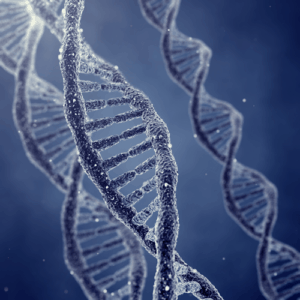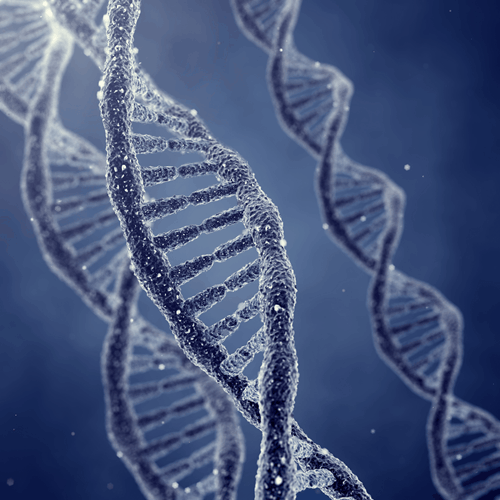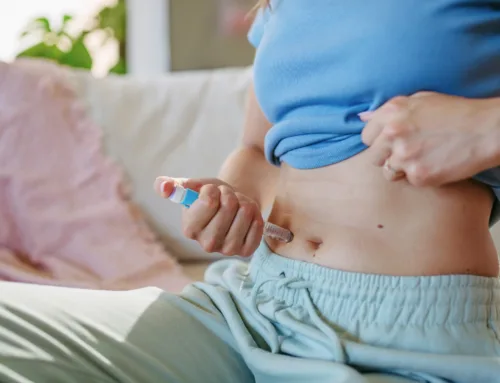This story originally appeared on the FitPregnancy.com website.
Nothing’s so bad that it couldn’t be worse

I immediately thought of my Grandpa Julius’ favorite saying: Nothing’s so bad that it couldn’t be worse. It was true. I hadn’t been attacked by flesh-eating bacteria or kidnapped by terrorists or diagnosed with cancer. Surely there were circumstances more dire than harboring expired eggs.
These days, in vitro fertilization is so common that the stigma has virtually vanished; of my six friends who underwent IVF, only one kept it quiet. But donor-egg IVF is a different story. According to the U.S. Centers for Disease Control and Prevention, a substantial 12 percent of all IVF cycles in the U.S., about 16,000 a year, involve eggs retrieved from a donor; and donor-egg IVF has the highest success rate of any fertility treatment—52 percent nationally, upward of 75 percent at the top clinics. Yet few women admit to going this route.
Plenty of celebrities—TV commentator Nancy Grace, political wife Elizabeth Edwards and actress Geena Davis, among them—have given birth in their mid- to late 40s, and you can bet that nearly all have used donor eggs because the odds of a woman 44 and older conceiving via IVF with her own eggs are 0.8 percent, according to CDC statistics. But no one has come right out and said so. Desperate Housewives star Marcia Cross, who gave birth last year to twin girls at age 44, came the closest, telling the media, “When a woman gets older, they get donor eggs, which doesn’t make the baby any less beautiful or perfect. One’s own eggs only last so long.” But she has never indicated whether she used donor eggs herself.
Even at my own fertility clinic, when a pregnant donor-egg IVF patient “graduates” to the care of a regular obstetrician, the doctors ask, “Do you want your OB to know you used a donor?” They seem to view egg-donor IVF as a touchy subject. Remarkably—alarmingly—some women who use donor eggs don’t even tell their own children.
The logical next step
After our fertility doctor broke the news, we told him we’d mull over the idea of using an egg donor for ivf and get back to him. But I was already sold. Unbeknownst to Paul, a few days earlier I had scrolled through an egg-donor website—just in case—and surprised myself by how quickly I warmed to the concept.
Before we’d started down the road of fertility treatment, I had this vague idea that egg-donor IVF must feel like a second-rate option, a distressing last resort. But as I perused the donor database, it seemed nothing of the sort. It simply felt like the logical next step—between IVF and adoption—and I was grateful that technology offered us a back-up plan. Of course, some of the donors needed some serious help in the marketing department (one English major described herself as “calm, cool and collective”), but overall they seemed like an endearing bunch. A law student/snowboarder, a nurse with a flair for graphic design, an aspiring writer who’d climbed mountains—certainly among them was a worthy substitute for me, if it came to that.
And so, when it did, I was a step ahead of my husband. Paul had never considered that we might flunk out of IVF and at first couldn’t fathom using an egg donor. He couldn’t quite articulate why, but when I pressed, delicately, I got to the bottom of his objections: He worried he wouldn’t love our children as much if their DNA wasn’t entirely ours. He thought we should consider trying straight-up IVF again, on the off chance that a healthy egg or two would surface, but I vetoed that idea, pointing out that I was not a pincushion.
The doctor had told us about one couple with our diagnosis who had nonetheless tried again four times and ended up using donor eggs anyway. Given the physical discomfort of daily shots, the emotional costs of another failure and the high price tag—no way was I going down that road.
Besides, who could say my genes were better than anyone else’s? Certainly we have our strong points, including longevity; even my grandma Ruth—a lifelong chain smoker who stocked her Oldsmobile with emergency fudge cookies—lived to nearly 90. But in my clan, we also trend toward bunions, psoriasis, uncontrollable hair frizz and barely enough collective mechanical aptitude to operate an electric toothbrush. If somebody’s DNA had to be sacrificed, I reasoned, better mine than my husband’s. At least the undesirable traits in Paul’s family—voting Republican, a fondness for holiday lawn ornaments—were not genetic.
If all this sounds entirely too rational, I did eventually have my own meltdown. A few days after the appointment, I spent a morning sobbing, mostly over having to wait so long for what came so naturally to others. I even resented couples who’d succeeded with regular IVF. No lawyers, psychologists or donor agencies involved—how easy they had it!
Pressing on…
But these feelings faded after a few days. I defaulted to the approach I’d relied on during my dating days: press on, and meanwhile, do something fun. When I was single, I’d taken up road-bike racing. I’d quit competing before our trip to Chile, but now, with several months to wait before we could try with a donor, I cranked up my training. Better, I figured, to be infertile and fit than infertile and flabby.
Besides, becoming parents was still well within our control, something I had decidedly lacked during my quest for a mate. Sure, infertility sucked, but it sucked a lot less than my years of dating guys with the emotional depth of a dust mite. After all, there aren’t any adoption agencies for husbands.
What I liked best about donor-egg IVF was that we’d both get to play a role in the creation of our child. Paul would provide the sperm; I’d provide the womb. Now all we needed were a few good eggs—that and my husband’s blessing.
Given the depth of Paul’s despair, I was surprised when after just a couple of weeks, Paul announced, “Let’s do it! Let’s find a donor.” On our doctor’s recommendation, he’d read a book about egg donation and felt we could be as happy as the families included in the book. He saw online that there were plenty of smart, athletic donors to choose from, but what really made him turn the corner, Paul said, was the procedure’s high success rate. There was a great chance that we’d make a quick transition from being fertility patients to being parents.
Months later, Paul told me that from the beginning, he knew he’d come around, and he thanked me for giving him space to go through the decision-making process at his own pace. I never told him how hard it had been to keep my mouth shut. To be continued…
RSMC is a complete fertility center under one roof. We specialize in IVF, especially difficult cases, and have an egg donation center as well as a surrogacy program. For more information please e-mail: info@fertile.com or call 858-436-7186.























